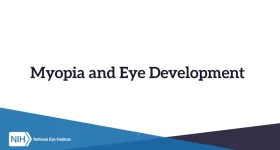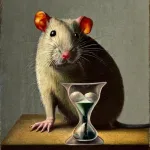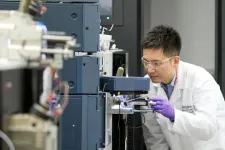(Press-News.org) A person’s ‘mindreading ability’ can predict how well they are able to cooperate, even with people they have never met before.
Researchers at the University of Birmingham found that people with strong mind reading abilities – the ability to understand and take the perspective of another person’s feelings and intentions– are more successful in cooperating to complete tasks than people with weaker mind reading abilities.
These qualities, also called ‘theory of mind’, are not necessarily related to intelligence and could be improved through training programmes to foster improved cooperation, for example in the workplace or in schools and colleges.
Lead researcher Roksana Markiewicz explained: “As a psychology researcher, I often get asked if I can read minds and while this is often said to me as a joke, humans do have mindreading abilities. Our study shows that these qualities are clearly important in activities that require cooperation.”
In the study published in the Journal of Experimental Psychology: LMC, the team measured theory of mind in over 400 participants. Participants were then sorted into pairs and joined a researcher on a zoom call where they played a series of communication games. Each player had a set of visual clues on their screen, which could not be viewed by their partner. They had to communicate about the different sets of clues and use them together to solve a puzzle.
Players who had high theory of mind (ToM) abilities and who were matched with people who had similarly high ToM scores cooperated more effectively than players matched with low ToM abilities. The researchers suggest that this is because of a heightened ability to align in the same mental space and to recover rapidly when misalignment occurs.
Similarly, the researchers found that failures in cooperation were more common among participants with low ToM abilities. They suggest this is because these participants found it harder to find ways to align their thinking, leading to more frequent mistakes, and poorer recovery from mistakes.
“We show for the first time that cooperation is not all about you,” says Roksana. “Even if you have excellent mindreading abilities yourself, it will still be advantageous to cooperate with someone with similar abilities, so choose your cooperation partner wisely!”
END
Successful cooperation depends on good mindreading abilities - study
2023-07-13
ELSE PRESS RELEASES FROM THIS DATE:
Low-dose atropine eyedrops no better than placebo for slowing myopia progression
2023-07-13
Use of low-dose atropine eyedrops (concentration 0.01%) was no better than placebo at slowing myopia (nearsightedness) progression and elongation of the eye among children treated for two years, according to a randomized controlled trial conducted by the Pediatric Eye Disease Investigator Group (PEDIG) and funded by the National Eye Institute (NEI). The trial aimed to identify an effective way to manage this leading and increasingly common cause of refractive error, which can cause serious uncorrectable vision loss later in life. Results from the trial were published in JAMA Ophthalmology.
Importantly, the findings contradict results from recent trials, primarily in East Asia, which ...
Low-dose atropine eye drops vs placebo for myopia control
2023-07-13
About The Study: In this randomized clinical trial of school-age children in the U.S. with low to moderate myopia (nearsightedness), atropine, 0.01%, eye drops administered nightly when compared with placebo did not slow myopia progression or axial elongation. These results do not support use of atropine, 0.01%, eye drops to slow myopia progression or axial elongation in U.S. children.
Authors: Michael X. Repka, M.D., M.B.A., of the Wilmer Eye Institute in Baltimore, is the corresponding author.
To access the embargoed study: Visit our For The Media website at this ...
COVID-19 severity and waning immunity after up to 4 mRNA vaccine doses in patients with cancer
2023-07-13
About The Study: This study provides evidence of the clinical effectiveness of mRNA-based vaccines against COVID-19 in patients with cancer. Longevity of immunity in preventing severe COVID-19 outcomes in actively treated patients with cancer, cancer survivors, and matched controls was observed at least five months after the third or fourth dose.
Authors: Raghav Sundar, M.B.B.S., Ph.D., of the National University Health System in Singapore, and Kelvin Bryan Tan, Ph.D., of the Ministry of Health in Singapore, are the corresponding authors.
To access the embargoed study: Visit our ...
Objectively measured visual impairment and dementia prevalence in older adults
2023-07-13
About The Study: In this survey study, all types of objectively measured visual impairment were associated with a higher dementia prevalence. As most visual impairment is preventable, prioritizing vision health may be important for optimizing cognitive function.
Authors: Joshua R. Ehrlich, M.D., M.P.H., of the University of Michigan in Ann Arbor, is the corresponding author.
To access the embargoed study: Visit our For The Media website at this link https://media.jamanetwork.com/
(doi:10.1001/jamaophthalmol.2023.2854)
Editor’s Note: Please see the article for ...
How COVID-19 crosses the placenta - study using placental tissue grown in the lab
2023-07-13
RESEARCH REVEALS HOW COVID-19 VIRUS INFECTS THE PLACENTA, AND HOW THIS CAN BE PREVENTED
In a landmark study published in Nature Cell Biology, Australian researchers, led by Professor Jose Polo from Monash University and the University of Adelaide and University of Melbourne’s Professor Kanta Subbarao from the Peter Doherty Institute for Infection and Immunity (Doherty Institute), have revealed how COVID-19 can infect the human placenta.
Research has shown that COVID-19 infections during pregnancy ...
The timekeeper within: New discovery on how the brain judges time
2023-07-13
From Aristotle’s musings on the nature of time to Einstein’s theory of relativity, humanity has long pondered: how do we perceive and understand time? The theory of relativity posits that time can stretch and contract, a phenomenon known as time dilation. Just as the cosmos warps time, our neural circuits can stretch and compress our subjective experience of time. As Einstein famously quipped, “Put your hand on a hot stove for a minute, and it seems like an hour. Sit with a pretty girl for an hour, and it seems like a minute”.
In new work ...
Tau-based biomarker tracks Alzheimer’s progression
2023-07-13
Two pathologies drive the progression of Alzheimer’s disease. Early on, amyloid beta plaques lead the way, but around the time cognitive symptoms arise, tau tangles take over as the driving force and cognition steadily declines. Tracking the course of the disease in individual patients has been challenging because there’s been no easy way to measure tau tangles in the brain.
But now, researchers at Washington University School of Medicine in St. Louis and Lund University in Lund, Sweden, have identified a form of tau that could serve as a marker to track Alzheimer’s progression. The marker also could be used by Alzheimer’s drug developers to assess ...
Engineering dual carriageways for signals
2023-07-13
Routing signals and isolating them against noise and back-reflections are essential in many practical situations in classical communication as well as in quantum processing. In a theory-experimental collaboration, a team led by Andreas Nunnenkamp from the University of Vienna and Ewold Verhagen based at the research institute AMOLF in Amsterdam has achieved unidirectional transport of signals in pairs of "one-way streets". This research published in Nature Physics opens up new possibilities for more flexible signaling devices.
Devices that allow ...
In historic procedure, donor liver protects heart transplant
2023-07-13
Doctors in Seattle are reporting a history-making case in which a patient received two donor organs, a liver and a heart, to prevent the extreme likelihood that her body would reject a donor heart transplanted alone. In this innovative case, the organ recipient’s own healthy liver was transplanted, domino-like, into a second patient who had advanced liver disease.
The dual-organ recipient, Adriana Rodriguez, 31, of Bellingham, Washington, has recovered well since the Jan. 14, 2023, procedures, said Dr. Shin Lin, a cardiologist ...
Red pill or blue pill? The critical decision to control the superbugs
2023-07-13
Researchers from Tokyo Medical and Dental University (TMDU) investigate a pharmacist-led intervention to optimize the oral antimicrobial prescriptions in dental setting
Tokyo, Japan - The battle to stop the increase of superbugs in hospitals has been an ongoing struggle for healthcare professionals. Dentists are currently facing a medical challenge that determines the faith of antimicrobial resistance in healthcare settings. To choose the “red pill” means to embrace the painful truth that bacteria are acquiring resistance to many antimicrobials. Meanwhile, the “blue pill” creates ...




